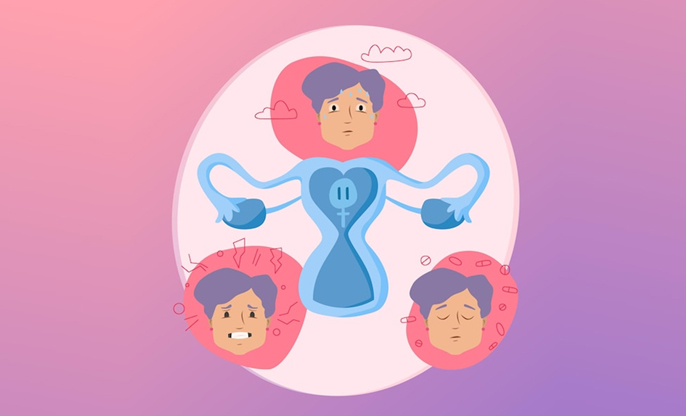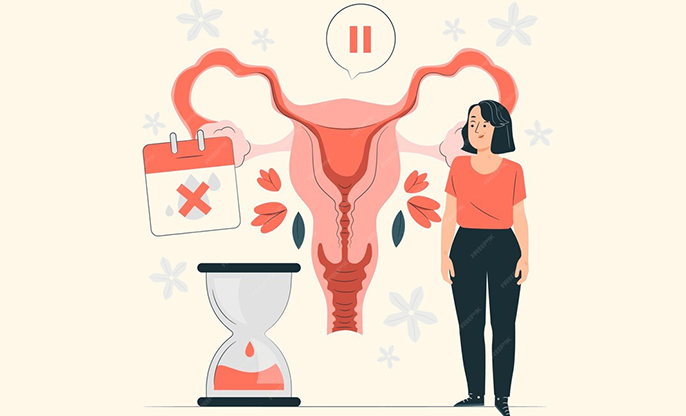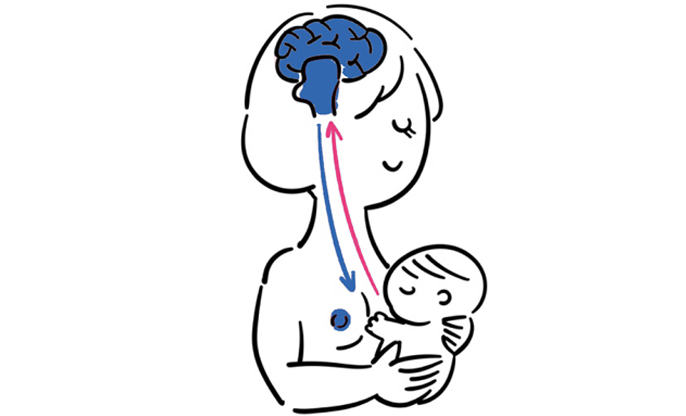
Hormones are like the hidden conductors of our body’s orchestra, subtly but powerfully influencing every note of our physical and emotional well-being. For us women, estrogen and progesterone play leading roles in this symphony, touching everything from our hearts to our bones. Their fluctuations are not just background music; they are pivotal in the transitions of our lives, from the ebbs and flows of monthly cycles to the more pronounced changes of menopause.
Our Hormonal
Partners: Estrogen and Progesterone
These hormones do so much more than manage our reproductive lives; they impact our bone health, keeping them strong and resilient, and protect our hearts by helping manage cholesterol and keeping our blood vessels flexible. They're involved in how our bodies use sugar and fat, influence where we store fat, and even sway our moods and cognitive functions, keeping our minds as sharp and vibrant as possible.
Feeling the Waves
Throughout our lives, we ride the waves of hormonal
changes:
● During our Monthly Cycle: We might
feel energetic and vibrant some days, only to be bogged down by bloating or
mood swings as hormone levels rise and fall.
● In Pregnancy: These hormones
support us, nurturing the new life growing inside, even as they overhaul our
bodies and sometimes our glucose levels, making us ever-watchful of gestational
diabetes.
● Through Perimenopause and Menopause: Here, the decrease in these hormonal levels can sometimes leave us feeling like we're on a roller coaster, with hot flashes, sleepless nights, and shifting moods.
Managing Our
Hormonal Health
Living with these fluctuations means finding ways to
maintain balance:
● Eating Right: Foods rich in
calcium and vitamin D support our bones, while phytoestrogens from plants can
help naturally balance hormones.
● Staying Active: Exercises,
especially weight-bearing and cardiovascular ones, not only strengthen our
bones but boost our mood and metabolism, helping us manage weight and stress.
● Considering Hormone Replacement Therapy
(HRT): For some of us, especially when menopausal symptoms hit
hard, HRT can be a lifeline, helping to restore our body’s hormonal balance and
alleviate symptoms.
● Regular Check-ups: Keeping track of our bone density, cholesterol levels, and blood pressure helps us catch potential issues before they become problematic.
Navigating the complex dance of hormones is crucial, not just for our physical health but for our overall quality of life. By understanding the influence of estrogen and progesterone, we can better prepare for and manage these changes, ensuring we live every stage of our lives to the fullest. Let's embrace this journey, support each other, and continue to seek knowledge and care that enhances our health and vitality.




